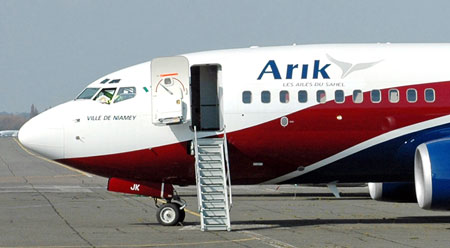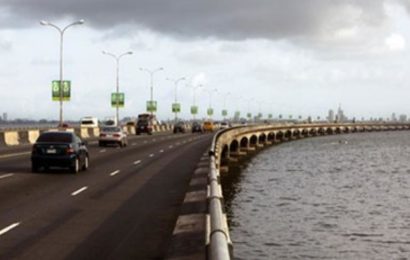 Nigeria’s largest airline, Arik Air Limited, has announced the suspension of its flight operations, blaming a delay in insurance documentation.
Nigeria’s largest airline, Arik Air Limited, has announced the suspension of its flight operations, blaming a delay in insurance documentation.
Arik’s Public Relations and Communications Manager, Olabanji Ola, said the airline will resume operations as soon as the problem is resolved.
Reports that Arik had cancelled flights on Tuesday morning and afternoon had fueled speculation that the airline might have become the latest casualty in the financial crisis plaguing Nigeria’s aviation sector.
But Mr. Ola said the delay in “approval of documentation” was caused by the Sallah public holiday which was followed by a “long weekend”.
“At the present time, all flights of the airline have been cancelled for Tuesday, 13 September, 2016 and the airline has stated that it would be getting in touch with passengers to provide an update on rescheduling of their flights,” Mr. Ola said. “This situation is likely to continue for the next few days until such time that NAICOM (National Insurance Commission) approves a waiver on a priority basis for the new insurance company to renew the policy.”
Mr. Ola said passengers had been notified of the development via text messages but customers in need of information could contact Arik through its customer care lines or visit its website.
The statement was silent on compensation, but Mr. Olabanji said that the airline was taking care of all concerns arising from the crisis.
“We’re addressing all issues relating to the disruption,” Mr. Olabanji said. “But I am not going to get into specifics about compensation at this point.”
On Tuesday, thousands of passengers were left stranded across the country as the Sallah holidays came to an end. It means many workers may be unable to resume duties on Wednesday.
The development came two weeks after two other national carriers, Aero Contractors and FirstNation, suspended operations on August 31 and September 1, respectively.
While Aero blamed a difficult business environment for its decision to close down and send staff on indefinite leave, FirstNation said it wanted engineers to carry out a routine maintenance of its fleet.
Nigeria’s economic crisis had seen operational costs including the prices of aviation fuel— skyrocket in recent months, forcing some international airlines to source fuel and engine parts from other West African countries.
Local and international flights operators have increased the prices of their tickets.








